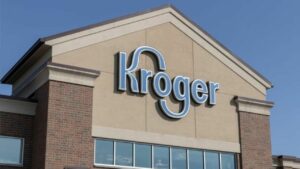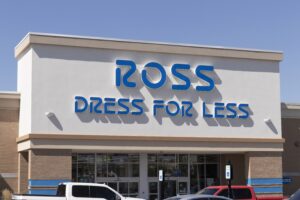Source: 11alive.com
December 29, 2015
Home Depot builds a store for Hollywood
Remodeling a basement is no simple construction project for DIY’ers, but building an alien landscape or a plausible spaceship control center is a project with its own, quite different, construction needs. That’s a fact that Home Depot has recognized with its Fayetteville, GA location.
11Alive reports that, in light of a boom in TV and film industry projects in the area, Home Depot has opened a one-off concept store that caters to the needs of Hollywood. The Home Depot Studio Store, which opened last year, is within the gates of Pinewood Studios, where “Ant Man” and the most recent “Captain America” movie were filmed. Employees at the Home Depot, referred to as “the cast,” have to sign non-disclosure agreements about the details of productions.
According to 11Alive, the store in Fayetteville is the only Home Depot that caters to a single industry.
Plenty of retailers have been introducing new concepts to appeal to changing customer needs and local requirements. Target, for instance, has rolled out small-format locations in recent years in big cities to appeal to the needs of urban shoppers.
In August 2015, it was reported that Starbucks was launching a dramatically-designed location in Las Vegas entirely unlike any of the chain’s other 21,000 locations.
Both alternate store concepts and one-offs find companies balancing the desire to meet the needs of customers against the desire to maintain a consistent brand identity.
One wonders if competing chains are kicking themselves for not getting in the local opportunity in Fayetteville. Lowe’s, for instance, has become well known for its futuristic innovations, like robot shopper assistants, virtual reality remodeling help and in-store touch screens.
“There are 40 some odd productions filming currently in and around Atlanta,” said Dana Farmer, pro account representative at Home Depot, in an interview with 11Alive. “Most of them are great Home Depot customers.”
Discussion Questions
How much do chains stand to profit from one-off store formats catering to a single industry or local demographic? What other unique industries do you see offering opportunities for one-off store formats?
Poll
BrainTrust
Cathy Hotka
Principal, Cathy Hotka & Associates
Recent Discussions







There’s a difference between one off “concept” stores, and customizing a single store for a market in order to meet unique needs and demand.
The Home Depot store in Georgia has specifically targeted the needs of the movie industry filming on location. If merchandise is targeted to the unique demands of the filmmakers, the store can be very profitable. The photos indicate that almost all of the customization is in assortment, not the general store format or approach.
In a larger sense, localizing assortments and staff expertise are what most stores must do in order to stay relevant for their core customer base. It has be a mainstay in apparel and groceries. There are additional opportunities in DIY — Floridian homes are quite different from those in Maine.
However, there is a big difference Home Depot store in Georgia and the Starbucks planned for Vegas. Starbucks’ mega store is truly “one-off” in terms of design, size and format. For one-off “flagship” stores to be successful, there has to be enough traffic and conversion. Vegas would seem to offer that for Starbucks. Apple has certainly been successful with one-off flagship stores in the major cities around the world.
At the end of the day, results count! In order to justify the investment and additional operating costs of one-off stores, there must be corresponding increases in sales volume, market basket and dollars per square foot.
This may well be a genius move because the movie industry is always building sets, but it’s hard to imagine how the one-off business model translates into opportunities in other company towns, like Detroit or Washington D.C. or New York. That said, kudos to the person who realized this opportunity in Hollywood.
This is brilliant. And it gives me another platform for my sermon about “possibility thinking.”
Home Depot and the like are almost totally focused on helping people solve problems — the sink is leaking, the basement needs finishing, etc. “Possibility thinking” is about seeing opportunities no one else is seeing, i.e., What possibilities exist that could profitably be made into a new reality?
Einstein said that if we match the frequencies of the possibilities we see it can’t help but be ours. “It’s a matter of physics,” he said. A typical Home Depot does NOT match the frequency of Hollywood. That’s why the Studio Store concept is brilliant; it has the right frequencies and energies. Hopefully those who run it also match Hollywood frequencies.
You can’t take a “one size fits all” retail concept and expect it to deliver custom and one-off services. It’s always about aligning the energy!
Hardware stores near Times Square have been catering to the theatrical industry for decades — it makes sense to localize your store’s format and inventory, especially when the population is exceptionally skewed to one industry or demographic.
The idea here is for the retailer to adapt to truly unique market conditions instead of pushing for standardization across the land in which the consumer adapts to the assortment.
The profitability depends not only on how well the local store meets unique industry or demographic demands, but also on operational and system flexibility to support the variation.
Successful one-off store formats based on demographics are more probable than those designed for specific industries. Exceptions might be for high geographic density industries such as Silicon Valley or the oil industry.
Naturally, Fayetteville, Georgia is not Hollywood. I like this concept for Home Depot because there are numerous other geographies that could cater to the film and video industry. Most states have a Film Board that provides government and local business support to the industry, like Minnesota where I live. Florida and Canada are two other places that come to mind. I could see Home Depot expanding this concept to a dozen or more locations over the next few years and driving profitable business from each location, but also giving it a platform for positive local publicity like this local TV report. Imagine the publicity opportunities when the stores would “retire” merchandise and the public would be invited in to buy this merchandise?
Creating interesting customer experiences is an excellent idea. Centering the concept upon a specific industry is certainly one direction that will appeal to many customers, however, those customers are not located in one location. Creating notable customer experiences for customers in a geographic area would be more appealing to the regular customers. The other option would be to open the new concept stores in as many locations as necessary to appeal to interested customers located in many places. In this case, Home Depot runs the risk of disappointing all the customers not located near the store appealing to their interest.
Just visualizing what a “space control center” might look like — and what you might need to build it — makes for fun reading on these EOY slow news days, but the phrase “one-off” pretty much tells you all you need to know about how much potential this type of format has. I suspect the PR potential afforded is as attractive as any actual profit.
We here in Georgia, in and around the Atlanta area, have become the new Hollywood of the South. Every week, in the paper, there is a list of all the celebrities who have been spotted around town. Many of them have come back time and again and have become regulars.
That said, this is the smartest move on Home Depot’s part. We have seen so many specialized businesses open up that cater to the movie industry so it was about time to see a big player jump in the ring.
Kudos to HD…and my 2 cents.
Or perhaps they’re serving a client who is a heavy user considering it’s within the gates of Pinewood Studios. Or maybe it’s a pop-up store knowing when the industry moves, the store will be gone too.
Regardless, going to wherever best prospects may be and serving them by inventorying the proper products is the platform for successful retail. Hasn’t The Home Depot always done it better than most?